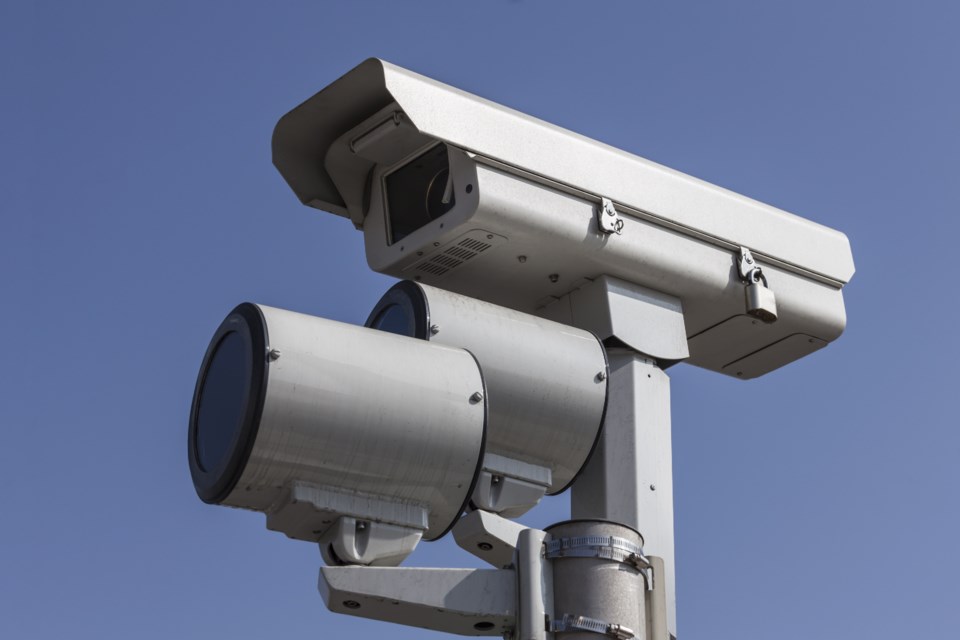Red light cameras and other forms of automatic traffic enforcement measures are coming to Greater Sudbury, as soon as the province completes the regulations governing how they will work in Ontario.
Joe Rocca, the city's traffic and asset management supervisor, told members of the operations committee Monday that Bill 65 will provide municipalities with a more detailed process of installing the cameras. While the city waits for the rules, staff are studying which areas of the community the cameras should be installed.
“We're preparing a report for later this year to discuss the findings of that study,” Rocca said.
In addition to red light cameras, speed enforcement cameras will also be permitted in community safety zones, which are designed to improve safety around schools and other areas where speeding is an issue. Rocca said simply declaring the zones haven't been an effective way to reduce speed, but automatic speed enforcement (ASE) cameras would likely be more effective.
The Ontario Traffic Council, a group that has worked on road safety issues in the province since 1950 and has representatives from Sudbury, is considering some of the implications of the changes and will recommend to the province how the new rules should be implemented. That includes the possibility the new measures will work so well that the courts will be flooded handling all the tickets that are issued.
“There is concern that ASE infractions may overwhelm the court system in some municipalities and that the province will not be able to supply enough Justices of Peace for the trials,” Rocca said.
Those and other practical concerns will be addressed before the measures become reality.
“The ASE program may prove to be a valuable tool for municipalities to improve road safety and to help reduce the negative impacts of speeding vehicles on area roads,” he said. “However, there are many unknowns regarding this program at this time. It is recommended that staff continue to participate in the development of the ASE program through the ASE Working Group.”
While the report was approved Monday, Rocca said it's not the same as committing to bringing the speed enforcement cameras to Sudbury.
“As details regarding the ASE program are finalized, staff will bring forward another report to seek support for the implementation of an ASE program in the city and to adopt a policy for the designation of community safety zones,” he said.
Ward 5 Coun. Bob Kirwan wondered why the city isn't looking at the enforcement measures for all areas in the city.
“Why wouldn't all intersections benefit from this?” Kirwan asked.
Infrastructure GM Tony Cecutti said buying red light cameras and ASE equipment will be very costly and it's not practical to put them everywhere.
“It will be very expensive to do this,” Cecutti said, so it's important to target areas where safety will improve most.
Ward 11 Coun. Lynne Reynolds said she was concerned the city was getting into traffic enforcement, a new area traditionally handled by police and provincial courts.
“It seems we're taking on more and more responsibility here,” Reynolds said. “The fact we're enforcing the Highway Traffic Act, are we getting into a whole new area here?”
Cecutti said the cameras will enforce current speed limits, sending violators a notice and a fine. If they appeal or take issue with the ticket, it will go through the normal provincial offences process.
However, the cameras will have no leeway, he said. A police officer normally shows discretion when issuing tickets, taking into consideration a number of factors. But the cameras will simply issue tickets to anyone who breaks the speed limit.
“My understanding is we won't have that discretionary power,” Cecutti said. “It will just be a matter of how big the fine will be ... We're empowered (only) to set up equipment that measures your driving versus the Highway Traffic Act.
“It's not city staff determining whether the charge will be successful or not.”
Ward 12 Coun. Joscelyne Landtry-Altmann said she had no misgivings about the program.
“The red light cameras, I'm very glad this is proceeding,” she said.
“Can we encourage the (Ontario Traffic Council) to move along a little faster?”



